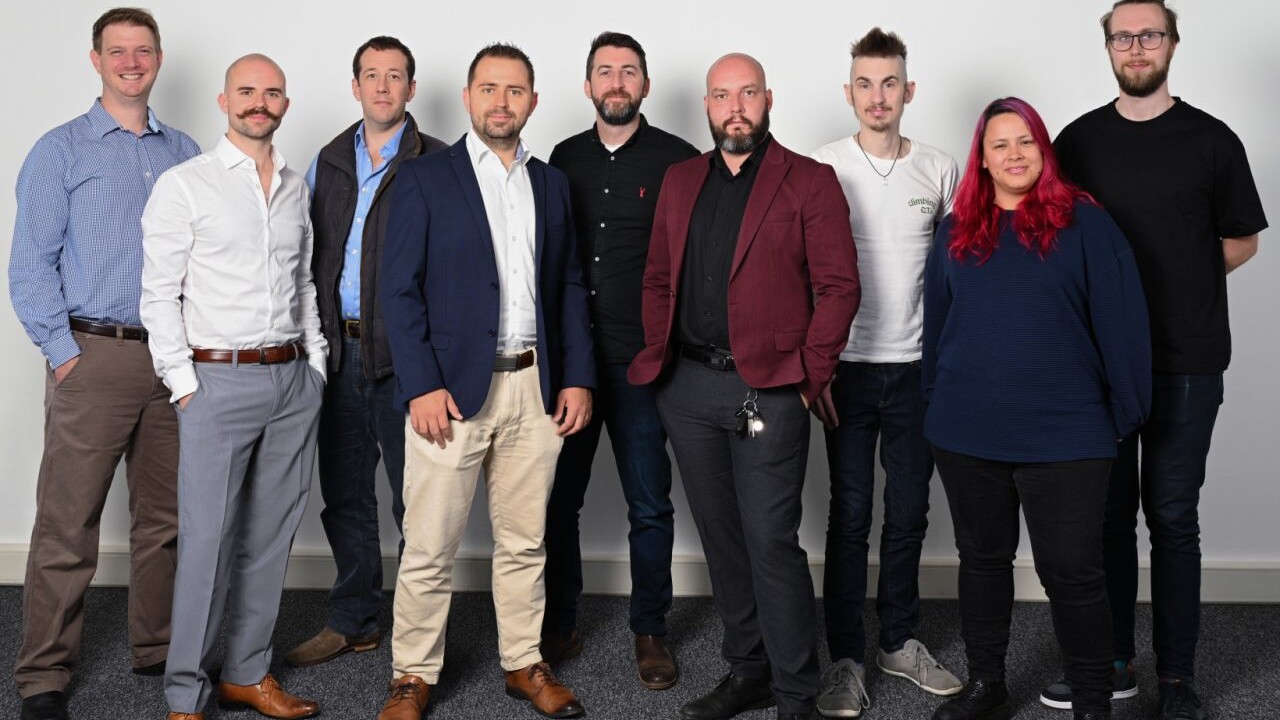
The NATO Innovation Fund (NIF) has announced its first investment in quantum tech, leading a €5mn seed round. The recipient is Southampton University spinout Aquark Technologies, which has developed a unique quantum sensing technology.
Aquark’s patented cold atom system can be used as an alternative position, navigation, and timing (PNT) device, independent from satellites and thus immune to external tampering such as GPS interference.
Doing away with the cumbersome magnetic traps
Aquark calls itself a miniaturisation company. It specialises in micro-fabrication and vacuum technology. However, what really sets it apart, is that it has found entirely new ways of trapping neutral atoms.
People usually do this by using what is called a magneto-optical trap (MOT), which uses magnetic fields to manipulate the atoms. During his PhD, one of the company’s co-founders and CEO, Andrei Dragomir, found a way to trap atoms without magnetic fields.
“Basically we have rolled back time to the 1980’s and sort of branched off saying ‘hey, there is a better way to do this’,” Alexander Jantzen, co-founder and COO, told TNW. “This allows us to build systems that are simpler because we don’t need as much control on things like magnetic fields.”
This translates to systems that are smaller, lighter, cheaper, and more energy-efficient than existing ones. They are also more robust, and can be used in difficult terrain including in the air and underwater.
While Aquark’s technology is applicable to a broad range of quantum areas, the startup has decided to focus on quantum sensing as this is where “the fastest returns and biggest impact” are to be found at the moment.
“In terms of the multitude of things you can do with this technology, timing is kind of the most mature market,” Dragomir told TNW. “It is far from everything we aim to do as a company, but it is a good starting point.”
Dual-use a stepping stone
It goes without saying that if NATO is interested, there are defence applications for the technology. But other sectors that can immediately benefit from this kind of infrastructure upgrade include data centres, telecommunications, and financial transactions, which also rely on highly precise location and timing.
The defence application may previously have caused other funders to hesitate, but this stance seems to have evolved along with the geopolitical climate.
“When we started looking for institutional investors, we had a lot of interactions where dual-use was off limits for a lot of them, but that changed in the last year or so,” Dragomir said.
But the dual-use (applicable for both civilian and military purposes) aspect is only part of a strategy to take the technology further, Jantzen said. “For us ultimately, there is a civil use case at the end of it that will be driving this. We see a realistic path now from this tech living in labs to actually being in people’s cars and homes, national infrastructure, and everything like that.”
While Aquark’s tech has not yet made it into our homes, it has escaped the lab and, in a world-first achievement, into a drone in the field. A literal field, as you can see in the video below.
Europe needs to work together on quantum or ‘be left behind’
Aquark is also the first DIANA (Defence Accelerator for the North Atlantic) cohort company to receive direct investment from the NIF. Other investors in the round include the Export and Investment Fund of Denmark (EIFD), UKI2S (managed by Future Planet Capital), and missile developer MBDA. The funds will allow Aquark to continue to scale and develop its technology — making it even smaller — and grow its team.
Dragomir is from Romania, Jantzen from Denmark, and the team (apart from some British natives) also includes a German, a Greek, a Lithuanian, and a half Czech and half Brit. The spirit of cross-border European collaboration is reflected in the group of investors, Jantzen believes.
“It feels like it elevates this above national borders — that it is not necessarily a sovereignty that has to sit with each individual nation, because the technology then becomes more challenging and more tricky. We have to be working together at a higher level or be left behind.”
Get the TNW newsletter
Get the most important tech news in your inbox each week.





